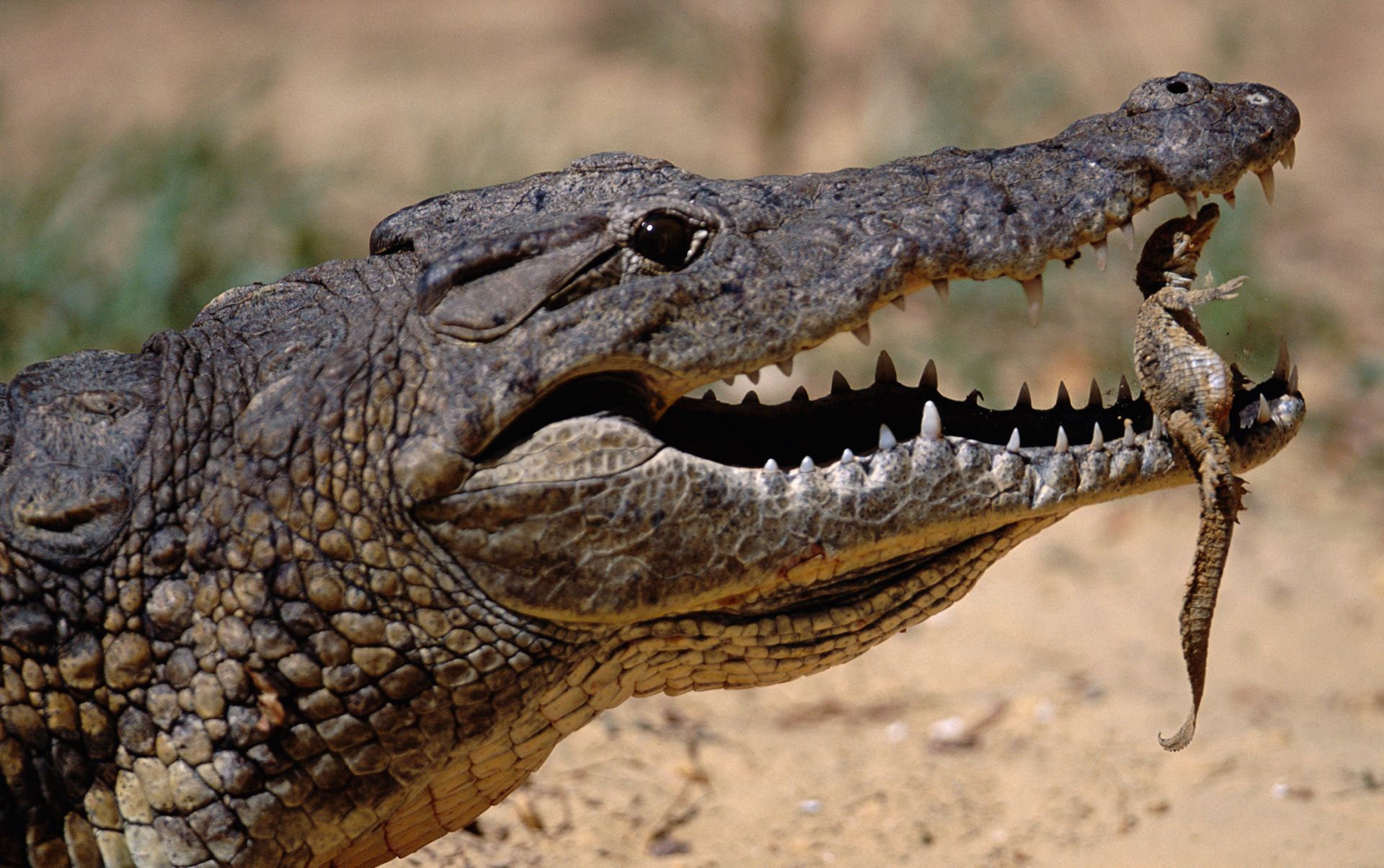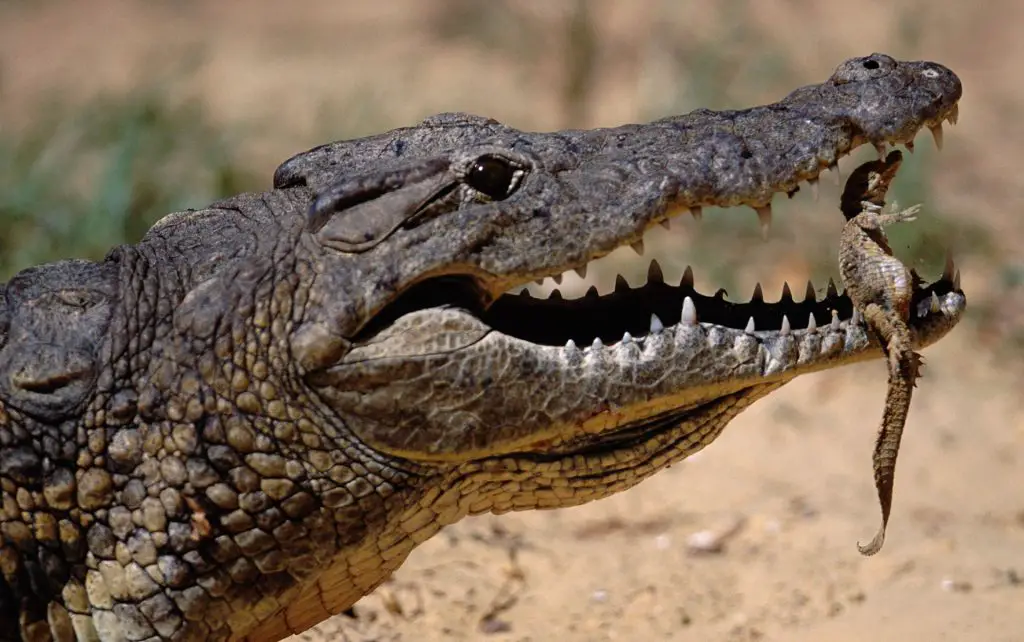Alligators are fascinating creatures that have lived on our planet for millions of years. These reptiles are known for their tough exterior and powerful jaws, but have you ever wondered if they also have a softer side? Do alligators take care of their young, or do they abandon them to fend for themselves?
Unlike many other reptiles, female alligators are highly attentive mothers. They build nests made of vegetation, sticks, and mud, where they lay their eggs. Once the eggs hatch, the mother alligator stays close by to protect her offspring and help them navigate their new environment. But is this level of parental care unique to alligators, or do other reptiles exhibit similar behavior? Let’s find out!
Yes, alligators do take care of their young. Female alligators build a nest made of vegetation and mud where they lay their eggs. They then guard the nest and will fiercely protect their young once they hatch. The mother will carry the hatchlings in her mouth to water and will stay with them for up to two years.

Do Alligators Take Care of Their Young?
Alligators are fascinating creatures that have been around for millions of years. They are known for their incredible strength and their sharp teeth. But what about their parenting skills? Do alligators take care of their young? Let’s explore this topic in detail.
Parenting Habits of Alligators
Alligators are known to be good parents. Once the female alligator lays her eggs, she covers them with vegetation to protect them from predators. The temperature of the nest determines the gender of the offspring. The female alligator will stay close to the nest to protect it from predators. She will also regulate the temperature of the nest by moving the eggs around. This ensures that all the eggs hatch around the same time.
Once the eggs hatch, the female alligator will carry her offspring in her mouth to the water. She will protect them from predators and teach them how to swim. The female alligator will stay with her young for up to two years, providing them with protection and guidance.
Benefits of Alligator Parenting
Alligator parenting has many benefits. By protecting their offspring from predators, alligators increase their chances of survival. Alligators also teach their young how to swim and hunt, which are essential skills for their survival. This ensures that the offspring are well-equipped to survive in the wild.
Moreover, alligators are important for the ecosystem. They help control the population of other animals, such as fish and turtles. Alligator parenting ensures that the population of alligators remains stable, which is essential for the ecosystem.
Alligator Parenting vs Other Animals
Alligator parenting is different from other animals. Unlike mammals, alligators do not nurse their young. Instead, they protect them and teach them how to hunt and swim. This is because alligators are reptiles and have different parenting habits from mammals.
However, alligator parenting is similar to other reptiles, such as crocodiles and turtles. These reptiles also protect their offspring and teach them essential survival skills.
Conclusion
In conclusion, alligators are good parents. They protect their offspring from predators, regulate the temperature of the nest, and teach them essential survival skills. Alligator parenting has many benefits, such as increasing the chances of survival of the offspring and maintaining a stable population of alligators in the ecosystem. Alligator parenting is different from other animals, but it is similar to other reptiles. All in all, alligators are fascinating creatures that deserve our respect and admiration.
Frequently Asked Questions
Learn more about the parenting habits of alligators.
What is the role of the mother alligator in caring for her young?
The mother alligator plays a crucial role in caring for her young. She builds a nest made of mud and vegetation near the water’s edge and lays her eggs. Once the eggs hatch, the mother alligator uses her snout to gently nudge her babies out of the nest and into the water. She actively protects them from predators, such as raccoons and birds, and provides them with warmth and shelter until they are old enough to take care of themselves.
Do male alligators help care for their offspring?
Male alligators do not typically play a role in caring for their offspring. Once the female alligator lays her eggs, the male typically leaves the area and does not return. The mother alligator is solely responsible for protecting and caring for her young.
How long do baby alligators stay with their mother?
Baby alligators will stay with their mother for up to two years. During this time, the mother alligator will continue to protect and care for her offspring, teaching them how to hunt for food and survive in their environment. After two years, the young alligators will be old enough to take care of themselves and will leave their mother to start their own lives.
What is the mortality rate of baby alligators?
The mortality rate of baby alligators is quite high. Many predators, including birds, raccoons, and even larger alligators, will prey on young alligators. Additionally, changes in the environment, such as drought or habitat destruction, can make it difficult for baby alligators to survive. However, with the protection and care of their mother, many baby alligators are able to grow up and thrive.
What can humans do to help protect alligator young?
Humans can help protect alligator young by preserving their natural habitat. This means avoiding activities that could damage or destroy alligator nests, such as driving off-road vehicles or building near waterways. Additionally, if you encounter a mother alligator and her young in the wild, it is important to keep your distance and avoid disturbing them.
Crocodile Mom Scoops Up Babies in Mouth
In conclusion, alligators are one of the few reptiles that exhibit parental care towards their young. They build nests, protect their eggs, and even help their hatchlings out of the nest. This care continues after hatching as the mother alligator will often stay with her young for up to two years, teaching them survival skills and defending them from predators.
However, it is important to note that not all alligators exhibit the same level of parental care. Some may abandon their eggs or young, while others may only provide minimal care. It is also important to remember that alligators, while fascinating creatures, are still wild animals and should be observed from a safe distance.
In conclusion, while alligators may not be known for their nurturing behavior like some mammals, they do exhibit a level of parental care that is unique among reptiles. Their protective instincts towards their young not only ensure the survival of their offspring but also contribute to the overall balance of their ecosystem.

